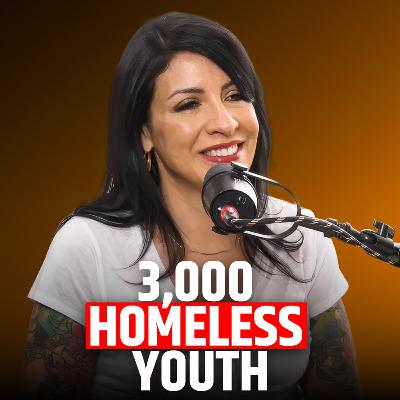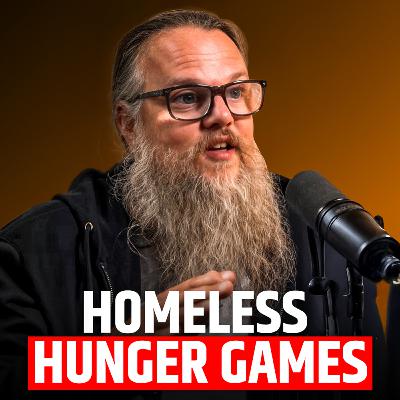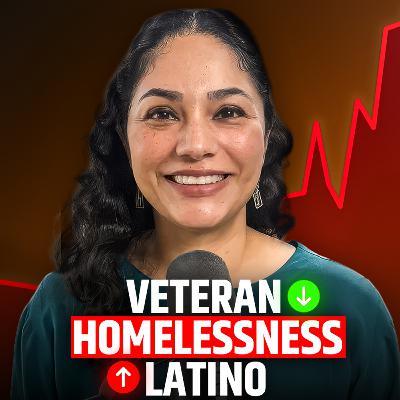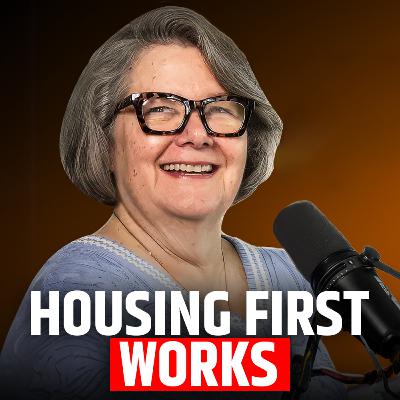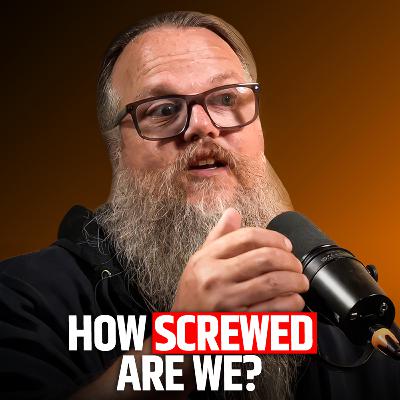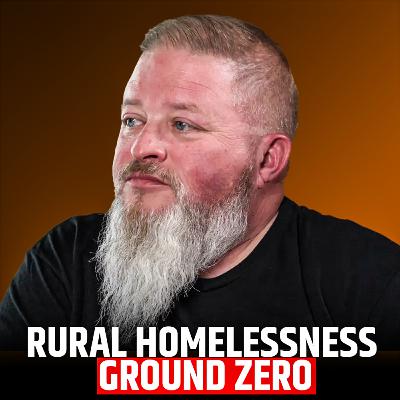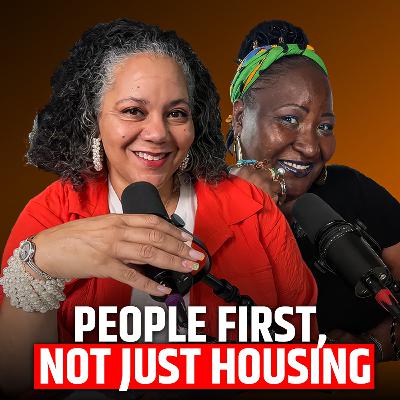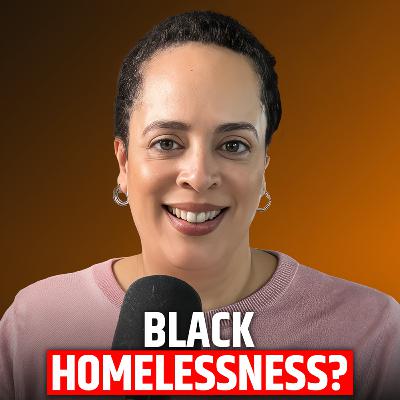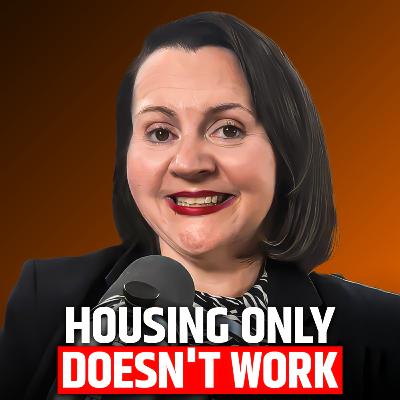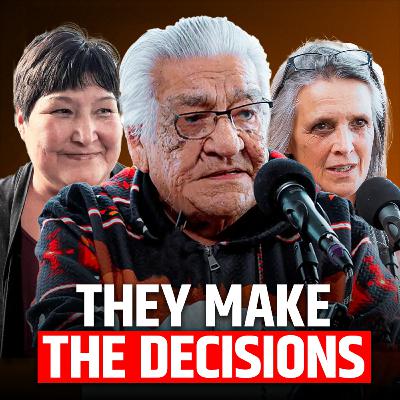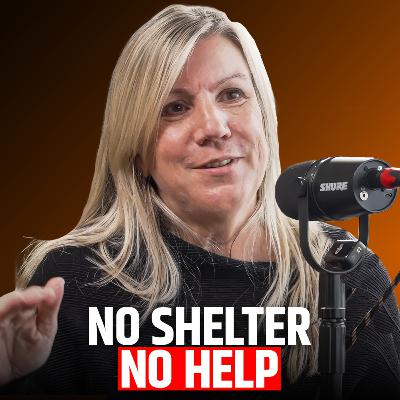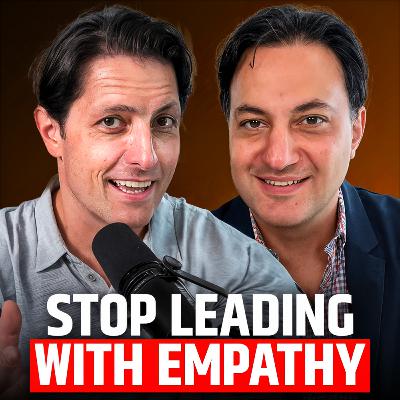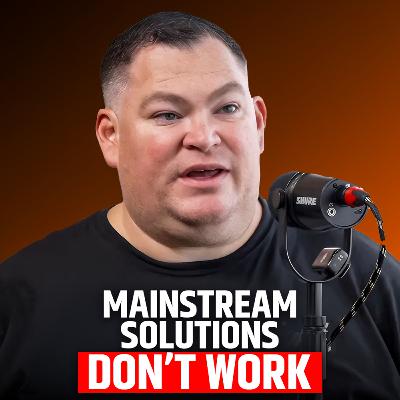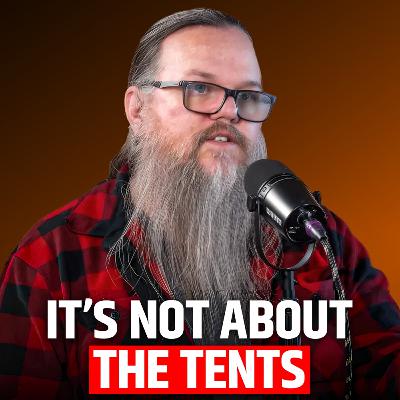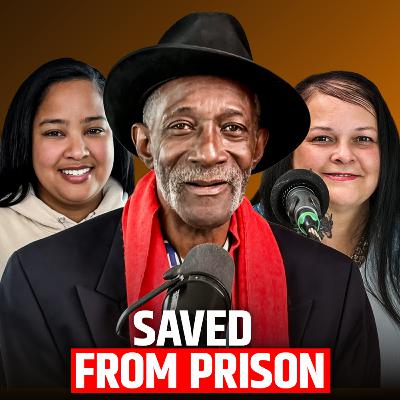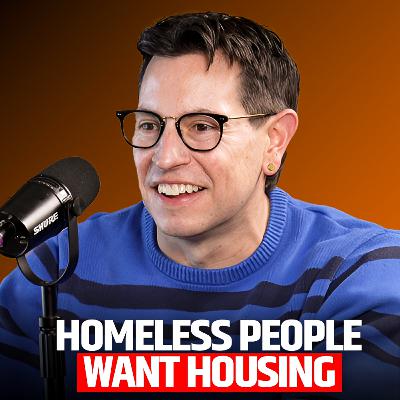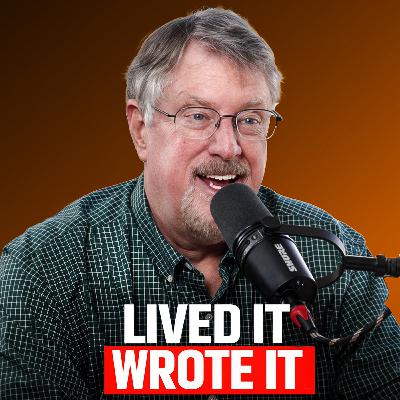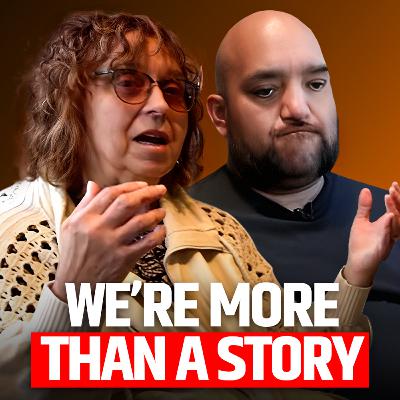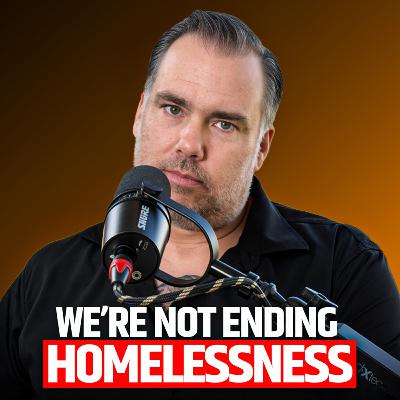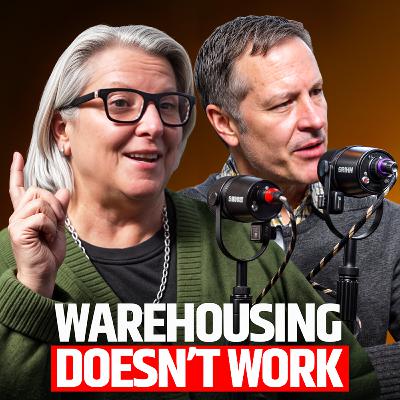Discover Homeless Unfiltered by Invisible People
Homeless Unfiltered by Invisible People

Homeless Unfiltered by Invisible People
Author: Invisible People
Subscribed: 14Played: 138Subscribe
Share
© Invisible People
Description
Welcome to the Homeless Unfiltered Podcast, hosted by Mark Horvath—the most raw, unfiltered podcast on homelessness you'll find. Get ready for real stories from people with lived and living experiences of homelessness, along with eye-opening insights from service providers, policymakers, and advocates. We dive deep into the hard truths, exposing both wins and failures in the fight against homelessness. This podcast will challenge you, inspire action, and spark change. Tune in and learn how to be part of the solution for positive change!
52 Episodes
Reverse
In Los Angeles, more than 3,000 young people experience homelessness on any given night. Many come out of foster care or the juvenile justice system, and too often LGBTQ youth and youth of color are hit hardest. But there are proven solutions.In this episode, I talk with Erika Hartman, CEO of Safe Place for Youth (SPY), about what actually works. From Host Homes to Housing First, SPY has grown from one Venice site to nine locations across LA County. Erika explains how trust, prevention, and youth-specific services can stop the pipeline into chronic adult homelessness—and why community opposition and funding cuts put this progress at risk.Learn more or get involved: https://safeplaceforyouth.orgThis podcast episode is sponsored by Pulse For Good—an automated feedback system that helps shelters, clinics, and community programs listen to the people they serve. Learn more at https://pulseforgood.com/invisiblepeople
The homeless services system is cracking under pressure. In this candid conversation with Iain De Jong, we unpack how the pandemic showed the sector at its best, nimble and innovative, but left behind burnout and lost staff. Since then, the housing market has shifted, rents have skyrocketed, and the Grants Pass decision has fueled a dangerous push toward criminalization.Politicians are demanding more shelters instead of real housing, resources are scarce, and nonprofits are competing like it’s the Hunger Games. Meanwhile, HUD is leaning on faith-based providers, raising serious concerns about coercion over care.We get real about recycled soundbites, harmful media coverage, and the sector’s lack of innovation. But this isn’t just doom and gloom, we talk about solutions: distinguishing first-time vs. chronic homelessness, funding housing instead of optics, and building authentic narratives that the public can believe in.It’s raw, uncomfortable, and necessary — the kind of conversation everyone in the sector needs to hear. For part one of this conversation, check out: The Screwed Scale: Why We’re at 9.7 Out of 10
Why has veteran homelessness dropped while Latino homelessness keeps increasing? In this episode, I talk with Melissa Chinchilla, PhD, a homelessness researcher and policy advocate, about what these opposite trends reveal. We explore how the VA’s integrated approach and Housing First model helped reduce veteran homelessness, and why Latino communities in Los Angeles face rising rates, language barriers, cultural stigma, and gaps in services. Melissa also shares insights from her time on the Los Angeles Homeless Services Authority Commission and her research connecting housing, health, and community.This conversation shows what’s possible when resources align — and what happens when entire communities are left out of the conversation.
What does it really take to make Housing First work? In this episode, I sit down with Deb DeSantis, President & CEO of the Corporation for Supportive Housing (CSH), a national leader advancing supportive housing solutions across the country.We talk about why Housing First succeeds when it’s done right, the dangers of “housing only” approaches, and how lived experience transforms policy and practice. We also dive into Returning Home — a groundbreaking program for people leaving prison that we featured in a recent documentary. You can watch the film here: https://www.youtube.com/watch?v=xZngGA7xfucIf you want to understand what’s working — and what needs to change — in the fight to end homelessness, this conversation is for you.This podcast episode is sponsored by BetterHelp. If you’re struggling and think you’d benefit from a therapy session, go to https://betterhelp.com/invisiblepeople or choose INVISIBLE PEOPLE during signup and get 10% off your first month of therapy.
This is our sixth podcast with Iain De Jong, and it may be the most urgent one yet. Across the country, criminalization of homelessness continues to grow while public support for housing as a solution keeps slipping. We talk candidly about where we are on “the screwed scale,” why recycled soundbites aren’t working, and what it will take to change the narrative before it’s too late.We believe good things happen when people stay positive—but we also have to face the world as it really is. This episode is about hard truths, accountability, and the culture change needed to protect decades of progress.Watch or listen to all of our podcasts with Iain De Jong in this YouTube playlist: invisiblepeople.tv/IainPodcasts
Rural homelessness is exploding across America — and West Virginia is Ground Zero.People are living in tents on their own land. Others survive in trailers without water, power, or help. Zach Brown, CEO of the West Virginia Coalition to End Homelessness, joins us to expose the hidden crisis most Americans never see.We talk about the lack of shelter beds, the rise in criminalization, the failure of mental health systems, and how one rural organization is building housing from the ground up — not waiting for someone else to fix it.If you think homelessness is just an urban issue, this conversation will challenge everything you thought you knew.This is rural homelessness. This is Ground Zero. This is West Virginia.
Tiffany Duvernay-Smith and Amiyoko Shabazz are fierce, funny, and full of truth. Both were once homeless. Both now lead advocacy efforts to reform a system that helped them — and failed them. In this episode, they share what it’s really like inside permanent supportive housing, why “support” is too often missing, and how tokenism and broken case management leave people isolated and retraumatized after they’re housed.This isn’t an attack on Housing First — it’s a call to do it right.If you care about housing justice, tenant dignity, or what it means to truly center people over programs, you need to hear this conversation.
Why are Black people so overrepresented in homelessness, and what can be done about it?Christine Haley, Chief Homelessness Officer for the State of Illinois, joins us to break it down. She shares how her family’s experience with housing inequality shaped her career, and what Illinois is doing to tackle the systemic drivers of homelessness.We talk about redlining, eviction, incarceration, income inequality, and why Black families are more at risk of losing housing. Christine also shares how Illinois is investing in solutions like court-based rental assistance, expanding medical respite care, and making the case for Housing First.If you care about housing, racial justice, or solving the root causes, not just the symptoms, this episode is a must.
Housing First didn’t fail — it was never fully funded.In this episode, Marcy Thompson, Vice President of Programs and Policy at the National Alliance to End Homelessness, joins me to break down the truth behind the headlines. We talk about why “housing only” doesn’t work, how supportive services were left out of the equation, and why the public has been misled. We also discuss how things shifted after 2017, the pressure on nonprofits, and what real solutions look like. If you care about ending homelessness, this conversation cuts through the noise. ▶ Learn more and take action: https://endhomelessness.org🎥 Video referenced in the podcast: Homeless Veteran Gets an Apartment: HOUSING FIRST WORKS https://www.youtube.com/watch?v=SizHuR225Co
What if the people who lived through homelessness were the ones in charge of solving it?In this powerful podcast episode, we speak with Jack Robinson and Dolores Cook of Thompson, Manitoba — two remarkable individuals who survived homelessness and addiction and are now decision-makers on Thompson’s Lived Experience Circle. Also joining the conversation is Andrea Hatley, the city’s Community Entity Advisor, who helped build the groundbreaking Thompson Model from the ground up.In a sector where lived experience is too often reduced to tokenism, Thompson is doing something different. Here, people who have lived it are leading it — shaping policies, making funding decisions, and changing lives. It’s a model every community should be watching closely.This episode is about recovery, real leadership, and the power of giving decision-making authority to the people closest to the problem. Don't miss itSpecial thanks to the Canadian Alliance and Homelessness.
Terrilee Kelford is a Registered Psychotherapist, CEO of the Carleton Place Collective, and Chair of Cornerstone Landing Youth Services and the National Alliance to End Rural and Remote Homelessness.In this episode, we talk about what homelessness really looks like in small towns across Canada, where there’s no shelter system, no services, and little public acknowledgment. Terrilee shares firsthand how youth are falling through the cracks, and why rural communities are being left out of national housing plans.Rural homelessness in Canada mirrors what’s happening across the United States: it’s widespread, undercounted, and underfunded. No matter where you live, this conversation matters.This episode challenges the myth that homelessness is only an urban issue.
The way we talk about homelessness is broken, and it's fueling criminalization, not solutions. In this behind-the-scenes conversation, I’m joined by Ara Berberian and Stephane Gringer, partners at Chameleon Collective, to unpack the research and strategy behind our new advocacy messaging toolkit. We tested what actually works—and what doesn’t—when it comes to changing public opinion on homelessness. What we found might surprise you.💥 Why empathy isn’t enough 📊 The three audience cohorts that shape the national conversation ⚠️ How well-funded misinformation campaigns are winning the narrative war 🧠 What nonprofits and advocates need to do right now to stop the spread of harmful mythsIf we don’t fix the messaging, we will lose the fight, and the homelessness crisis will continue to get significantly worse for all of us.👉 Explore the toolkit at invisiblepeople.tv/toolkit
Shane Pelletier, Executive Director of the National Indigenous Homelessness Council, joins us for a powerful conversation on why Canada’s mainstream responses to homelessness keep missing the mark for Indigenous communities. Drawing from lived experience and national advocacy, Shane breaks down how disconnection from land, culture, and identity, rooted in colonialism and residential schools, drives Indigenous homelessness. We talk about what doesn’t work, what actually does, and why community-led solutions are the only real way forward.His podcast episode is sponsored by Pulse For Good—an automated feedback system that helps shelters, clinics, and community programs listen to the people they serve. Learn more at https://pulseforgood.com/invisible.
Homeless encampments are growing, and cities keep sending in police to clear them out, which only makes the crisis worse. But what if the real problem isn’t the tents, it’s the system? In this episode, we sit down with Iain De Jong for an unfiltered conversation about what’s really driving encampments, why shelters aren’t the answer people think they are, and how real solutions start with trust, housing, and human connection—not punishment.This podcast episode is sponsored by Pulse For Good—an automated feedback system that helps shelters, clinics, and community programs listen to the people they serve. Learn more at: pulseforgood.com/invisible
What happens when someone finally gets a second chance and a place to call home? In this episode, we reunite with Heather, Willard, and Shanel, three people featured in our new documentary, Returning Home: Prison, Homelessness, or Housing? The Choice That Changes Everything - to explore how supportive housing after incarceration doesn’t just change lives, it strengthens communities.From the landlord who took a chance to the former prisoners who now thrive in stable housing, this is a raw, honest conversation about redemption, trust, and the public power of supportive housing.Their stories show how stable housing reduces recidivism, creates safer neighborhoods, and offers real savings to taxpayers. When we invest in people coming home from prison, we all benefit.CLICK HERE to watch the documentary now on Invisible People’s YouTube channel. It’s not just inspiring—it’s urgent.
Carter Hewgley is the Senior Manager at the L.A. County Homeless Initiative, working across 88 cities to confront one of the nation’s largest homelessness crises. In this episode, we dig into what’s actually working and why so many people get it wrong. Carter shares how programs like Pathway Home are proving that when you offer the right kind of housing with dignity and support, people say yes.If you’ve ever believed that homeless people “don’t want help,” this conversation will change your mind. It’s honest, hopeful, and urgently needed.
Kevin Fagan isn’t just a reporter — he lived the stories he covered. Kicked out at 16 and sleeping in cars, his experience shaped a 40-year career reporting on homelessness. At the San Francisco Chronicle, he published over 5,000 articles on the crisis, becoming one of America’s most trusted voices. In this episode, Kevin shares hard-won lessons from San Francisco’s streets, why homelessness keeps growing, and the power of telling human stories with dignity. We also dive into his new book, The Lost and the Found: A True Story of Homelessness, Found Family and Second Chances, and what it taught him about hope, connection, and second chances.Whether you’re a journalist, a fan of powerful stories, or want to better understand homelessness, this conversation is for you.To learn more about Kevin Fagan and find out where to order his book, The Lost and the Found, visit: kevinfaganwriter.com
They Don’t Just Share Their Story—They Make the DecisionsDee Martineau and Rico Morales are part of Hennepin County’s Lived Experience Advisory Group—a rare example of a system that doesn’t just ask for input, but actually gives decision-making power to people with lived experience of homelessness.In this moving and eye-opening conversation, they share their personal journeys, challenge tokenism, and show us what real equity looks like when those most impacted are trusted to lead.TThis powerful podcast conversation comes from our documentary, “Can We End Homelessness? Hennepin County Shows How.” Watch the full film here: https://youtu.be/yq1C8l4uSZc?si=wURzO38s_uxgeDw_
David Gillanders, Executive Director of Pathways of Hope, brings brutal honesty to this conversation. He challenges inflated success rates, explains why the system chases numbers over people, and shares how Housing First has been reduced to a checklist instead of a true support model. David speaks openly about capitalism, poverty, and the political choices that keep people homeless. If you’ve ever wondered why homelessness keeps getting worse despite all the efforts to solve it, this episode will give you answers most people are too afraid to say out loud.
If we want to end homelessness, we must fix the system meant to help—starting with our shelters. In this podcast episode, we speak with Sandra Clarkson, CEO of Calgary Drop-In Centre, and James Hughes, CEO of the Old Brewery Mission in Montreal—two of Canada’s largest and oldest homeless service providers. They share how their organizations are breaking away from the outdated model of warehousing people and instead embracing low-barrier, housing-focused care.It’s not about just giving people a bed—it’s about creating a pathway home.


